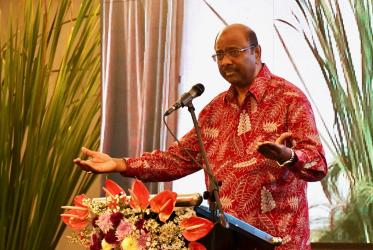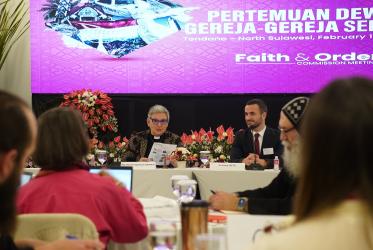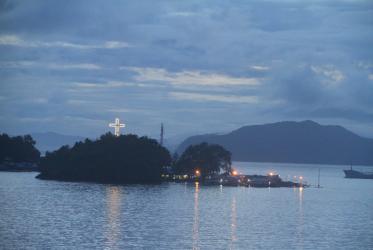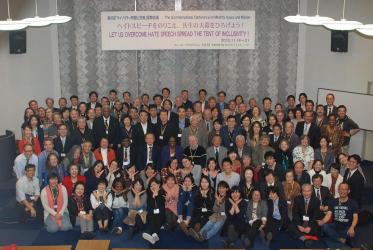Displaying 1 - 20 of 37
WCC Commission on Faith and Order gathers with hope at the heart
03 February 2024
In a COVID-stricken world, “everyone is important”
23 October 2020
The cry of the Papuans in Indonesia
14 November 2019
In the ecumenical movement to stay
26 April 2018
In Indonesia, hearts and minds turn to pursuing justice and unity
09 September 2017
Consultation considers right to food in context of climate change
15 December 2015
Japanische Kirchen diskutieren über die Probleme von Minderheiten
01 December 2015
Japanese churches discuss minority issues
01 December 2015
Landrechte bilden Schwerpunkt bei Podiumsdiskussion
17 November 2015









